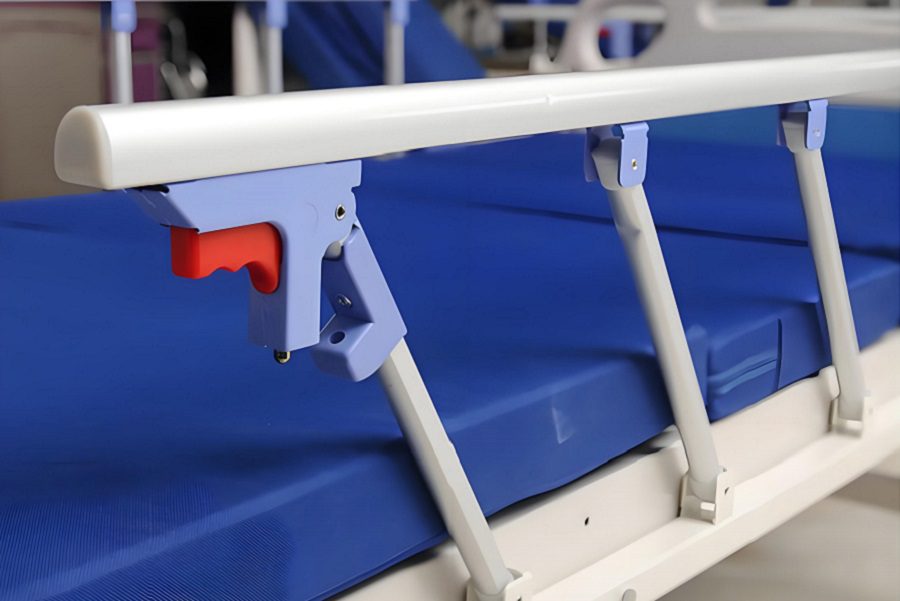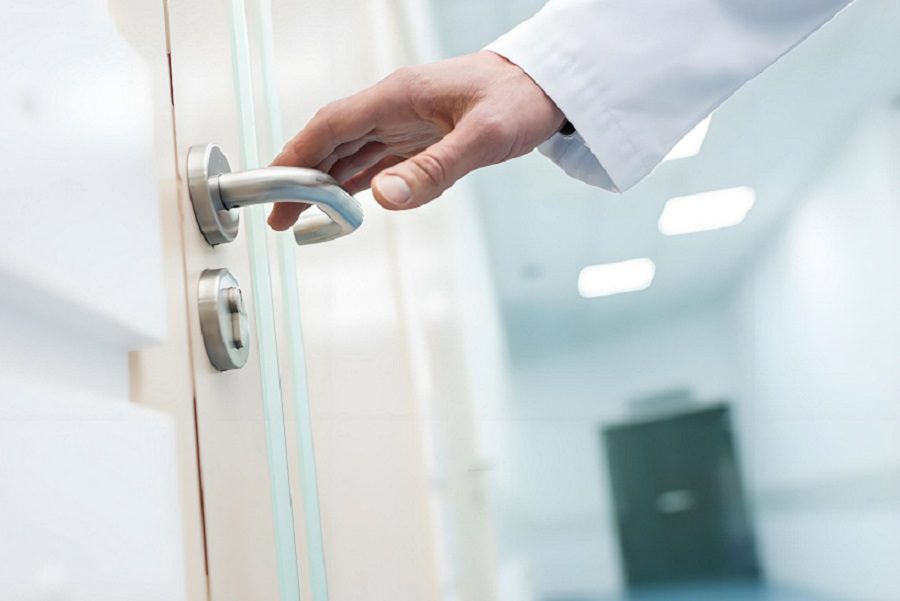Key words: Healthcare Settings, Clostridioides Difficile(C. diff)
Clostridioides difficile (C. diff) is a dangerous bacterium often found in healthcare settings, particularly affecting patients undergoing antibiotic treatments. C. diff infections lead to severe diarrhea, inflammation of the colon, and can result in life-threatening conditions like pseudomembranous colitis. What makes this bacterium so difficult to control is its ability to form highly resilient spores that can survive on surfaces for months. Traditional cleaning agents often fail to fully eradicate these spores, creating a challenge for hospitals and other healthcare environments. These persistent spores contribute to high treatment costs, longer hospital stays, and, in some cases, patient deaths.
Challenges in Controlling C. diff
Containing C. diff is not just about treating the infection; it’s also about preventing the spread of its spores. These spores are resistant to many disinfectants, making routine cleaning procedures ineffective. Healthcare institutions face ongoing challenges to find disinfection methods that eliminate spores without compromising patient safety or damaging the environment. Outbreaks of C. diff not only result in increased treatment costs but also jeopardize the credibility of healthcare facilities, leading to severe reputational and financial losses.
Chlorine Dioxide’s Role in Fighting Clostridioides Difficile(C. diff)
Chlorine dioxide has proven to be a highly effective solution for combating C. diff. A study published in the International Journal of Environmental Research and Public Health demonstrated chlorine dioxide’s ability to deactivate C. diff spores on various surfaces in healthcare environments. Chlorine dioxide works by oxidizing the cell walls of bacteria, including the resilient spores of C. diff, ensuring a complete disinfection of surfaces and air spaces. This makes chlorine dioxide highly advantageous in hospitals and care facilities where infection control is critical.
DOTIAN® chlorine dioxide effervescent tablets and powder offer a practical and reliable method of generating chlorine dioxide on-site. These products act as efficient chlorine dioxide generators, allowing healthcare providers to produce the exact amount of chlorine dioxide needed to disinfect surfaces, equipment, and air spaces, minimizing the spread of C. diff spores. Given that these spores can spread through contact with contaminated surfaces and airborne particles, ensuring comprehensive disinfection with chlorine dioxide is crucial.
Technical Aspects of Chlorine Dioxide’s Effectiveness
Chlorine dioxide’s unique chemical properties make it stand out in terms of its effectiveness at lower concentrations. Research shows that chlorine dioxide is effective in inactivating C. diff spores even at low concentrations. A study in the Journal of Applied Microbiology highlighted how chlorine dioxide disrupts bacterial membranes and inhibits protein synthesis, making it highly effective against a wide range of pathogens, including C. diff spores.
Additionally, a study published in the American Journal of Infection Control demonstrated that chlorine dioxide is able to deactivate C. diff spores on surfaces with minimal contact time, reinforcing its role as a superior disinfectant. Chlorine dioxide does not produce harmful by-products, unlike traditional disinfectants like bleach, which is a crucial benefit in healthcare environments where frequent disinfection is required.
Environmental and Economic Benefits of Using Chlorine Dioxide
When choosing solutions to control C. diff, it’s important to consider both environmental and economic impacts. Chlorine dioxide is highly biodegradable, breaking down into harmless residues, making it a preferred choice in healthcare settings that prioritize patient safety and environmental sustainability. Moreover, because chlorine dioxide is effective at lower concentrations, healthcare facilities can reduce the amount of chemicals used, leading to long-term cost savings.
DOTIAN® chlorine dioxide effervescent tablets and powder offer an economical solution as chlorine dioxide generators. These products are easy to store, transport, and apply, making them ideal for healthcare facilities that require flexibility in their disinfection protocols. By producing chlorine dioxide on-site in precise quantities, these products reduce waste and handling risks, offering a reliable solution for infection control, especially when combating C. diff.


Chlorine Dioxide Application Scenarios in Combatting Clostridioides Difficile(C. diff)
The applications of chlorine dioxide in healthcare environments are vast and versatile. For instance, chlorine dioxide can be used to disinfect high-touch surfaces like bed rails, light switches, and door handles where C. diff spores are likely to reside. Additionally, it is highly effective in sanitizing medical equipment and other critical surfaces that may harbor spores, reducing the risk of cross-contamination.
Chlorine dioxide can also be dispersed into the air to eliminate airborne spores, offering an extra layer of protection in spaces that house immunocompromised patients. Using DOTIAN® chlorine dioxide effervescent tablets and powder, healthcare providers can apply controlled, safe doses of chlorine dioxide, ensuring complete disinfection without interrupting daily operations.
Chlorine dioxide, especially through the use of products like DOTIAN® chlorine dioxide effervescent tablets and powder, is an essential tool in managing C. diff outbreaks. It not only treats the current infection but also prevents the future spread of this resilient bacterium. Given its ability to deactivate spores, its environmental friendliness, and its cost-efficiency, chlorine dioxide is indispensable in any healthcare facility’s infection control strategy.
For healthcare institutions seeking to enhance their disinfection protocols and protect patients from the dangers of C. diff, chlorine dioxide offers a comprehensive and reliable solution. Contact us today to learn more about how DOTIAN® chlorine dioxide effervescent tablets and powder can revolutionize your infection control program.
-
1g Chlorine Dioxide Tablet for Poultry Disinfection
-
Chlorine Dioxide Disinfection Tablets
-
Chlorine Dioxide Effervescent Powder Medicine Grade
-
Chlorine Dioxide For Food Processing
-
Chlorine Dioxide Powder Agriculture
-
Chlorine Dioxide Powder Food Grade
-
Chlorine Dioxide Powder for Aquaculture
-
Chlorine Dioxide Powder for Cooling Tower
-
Chlorine Dioxide Powder For Water Treatment











